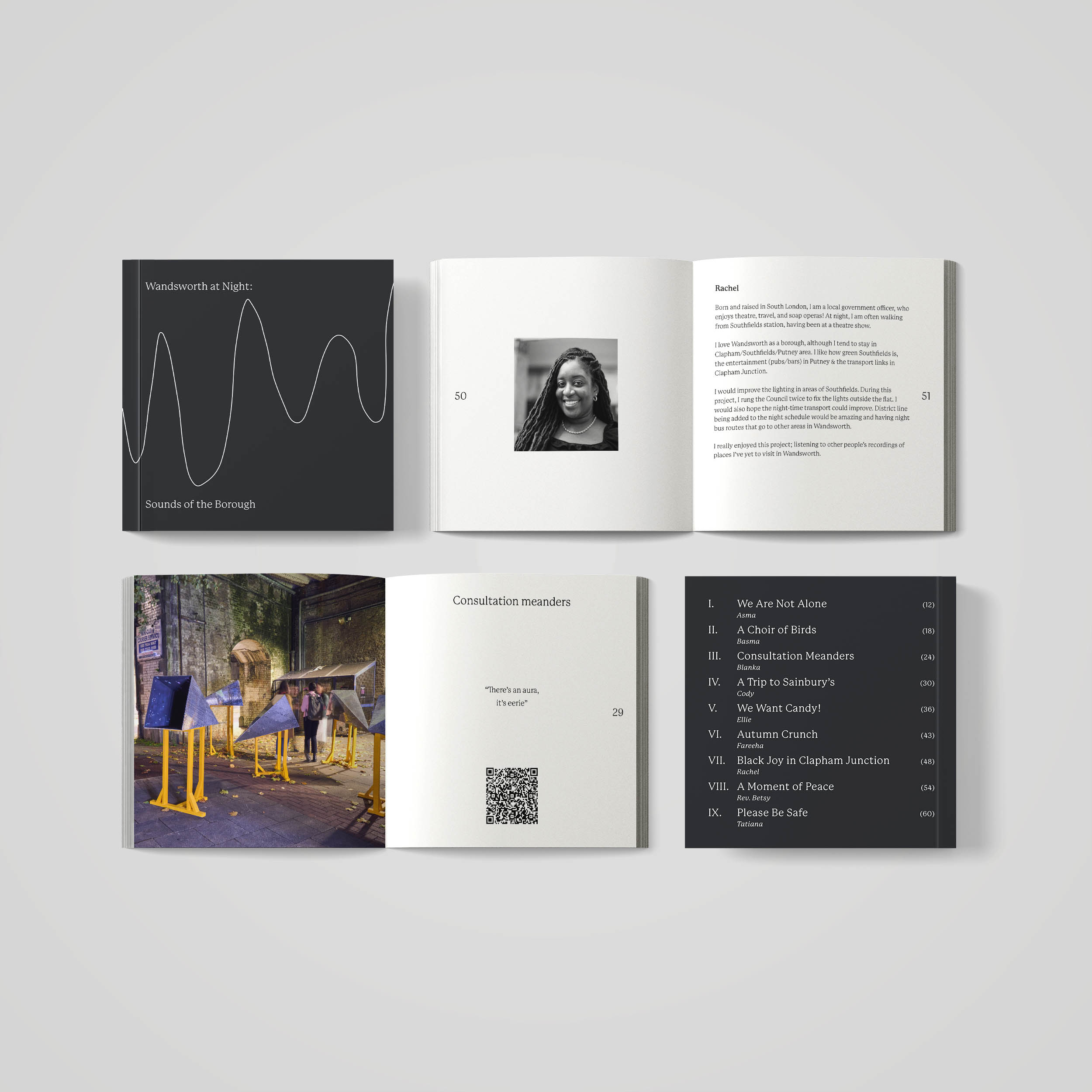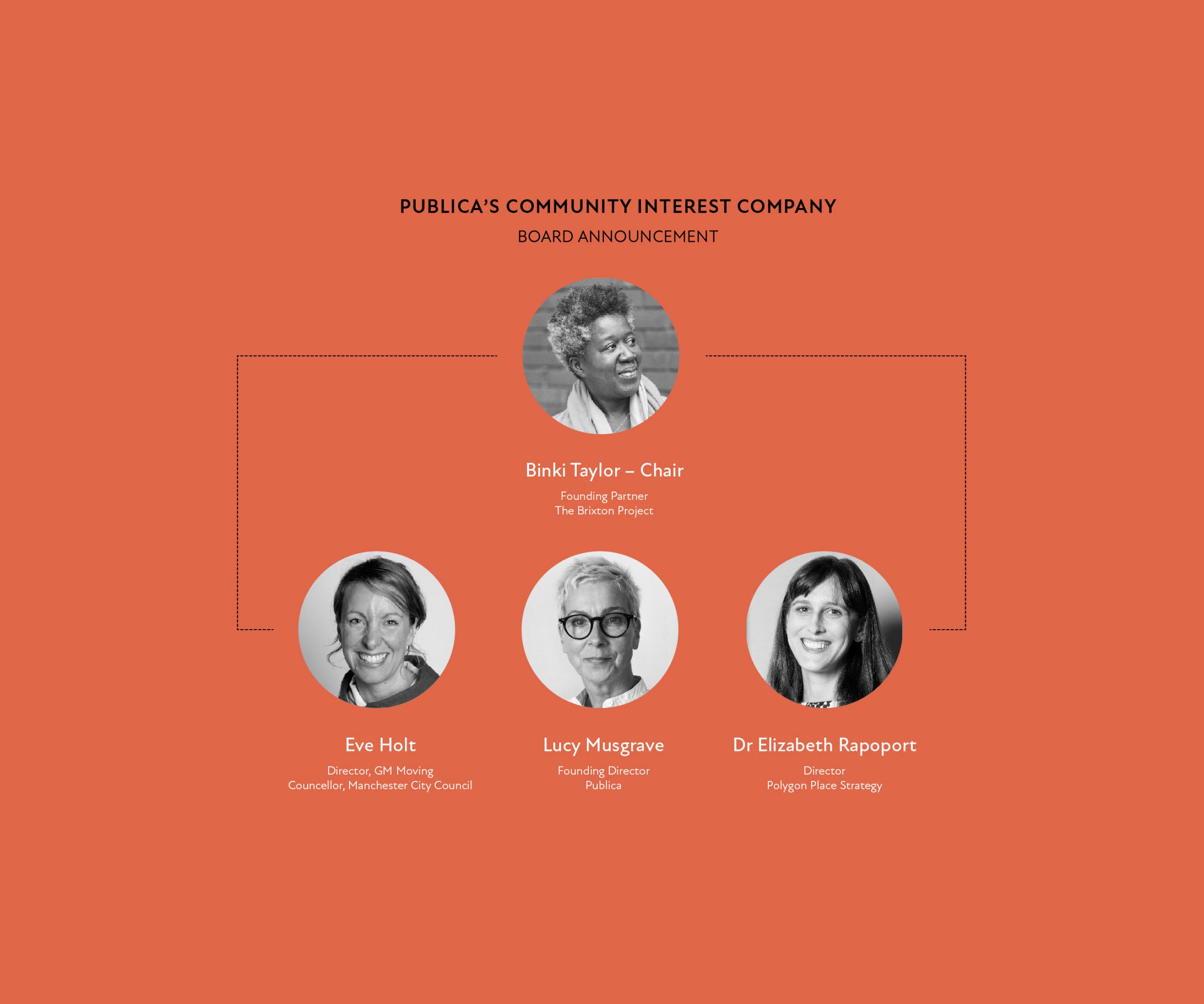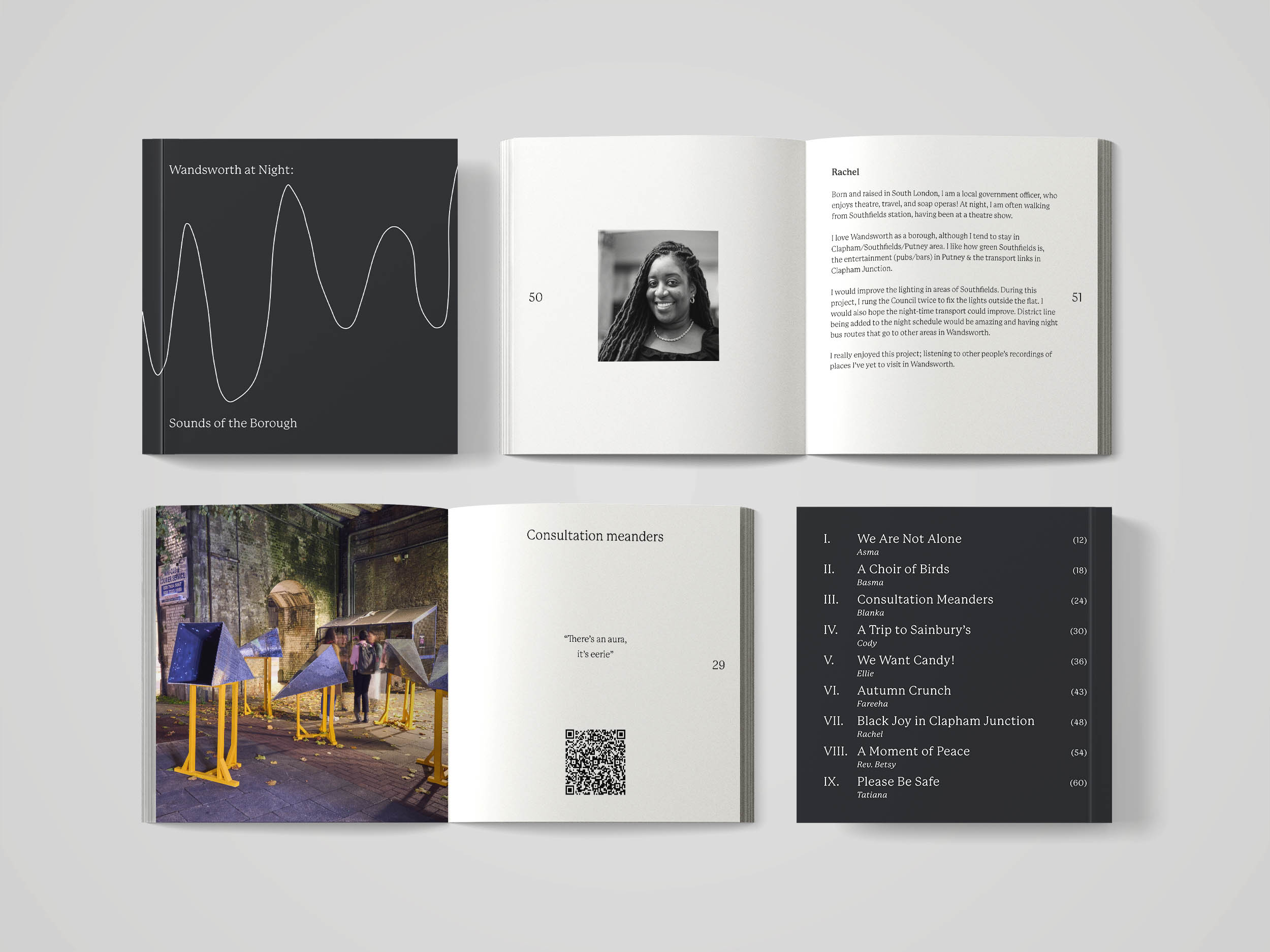



· 1 of 7 ·
WHAT WE DO
―
We make transformation to inclusive cities practical by providing access to knowledge and expertise, convening spaces for reimagination and delivering inclusive public realm projects.
We offer policy guidance, resources, toolkits, research, workshops, training, and advocacy work to advance public discourse and professional practice around inclusive cities. We also provide community design services in collaboration with our Publica Associates designers.
· 2 of 7 ·
PRIORITY 1: GENDER INCLUSION AND WOMEN'S SAFETY
―
We want to create cities where women, girls, and gender diverse people feel safe and able to participate freely and fully in urban life. In the UK, nearly 50% of women report feeling unsafe walking alone after dark, rising to over 80% in open spaces. Yet mainstream responses to gender-based violence in public space often rely on outdated – and sometimes harmful – ideas about who women are, how they use the city, and what makes them feel safer.
We know we can do better. It is now time to galvanise our sector, get expertise in the right hands, and deliver real transformative projects on the ground and at scale. When we actively address gender inequality in cities, we make them better for everyone.
· 3 of 7 ·
OUR ACTION PLAN
―
Knowledge Hub: We will create an online, open-access knowledge-hub to support policymakers, urban practitioners, local authorities, developers and community groups to understand and recognise the safety experiences, needs, and rights of women, girls, and gender diverse people in public urban spaces.
The hub will gather and curate community wisdom, academic knowledge, and policy insights to upskill communities and practitioners with accessible and engaging content that enables action and drives systemic change.
Imagination Space: Our innovation programme will enable people from across a wide variety of communities to gather to explore fundamental challenges and opportunities and turn bold aspirations into meaningful pathways for action. It will be a series of events and training programmes that will nurture the radical thinking required to re-envision urban development with gender inclusion in mind.
Action Projects: We will bring the collectively held knowledge and expertise of this initiative to bear on real life urban development projects. These will be community-led and will be delivered in partnership with developers, local authorities and transport agencies who are already investing in these areas.

· 4 of 7 ·
OUR CLIENTS
―
Our clients are made up of diverse representatives from the built environment, public and third sector. We serve community groups, developers and local policy makers to imagine alternative futures, and we are making knowledge and expertise around inclusive cities openly available so that anyone can make a difference through their own work.
· 5 of 7 ·
OUR ETHOS
―
Centering the most marginalised: We put most of our energy and resources into ensuring the most excluded can participate in the making of our cities. To facilitate this, we ensure to pay community members for their time, host events in non-traditional locations, ensuring physical accessibility such as the provision of sign language (and other) interpretation, accessible toilets, childcare, and ensuring these communities have a central say in how our work is run.
Reflexivity: We adopt a reflexive and curious approach to all areas of our work. This means taking time to examine how our own beliefs, judgments and practices affect our decisions or actions, as well as being willing to open-up difficult conversations in a spirit of curiosity, feedback and learning.
Playfulness and joyfulness: The most transformative and appropriate solutions emerge from a spirit of possibility and optimism. Creating the space for this is a skill that must be resourced, and requires dedicated long-term work to build up trust, respect and authentic relationships to allow us to truly ‘let go’ of inhibitions, ego, attempts to ‘find the right answer’ and perceptions of professionalism so that we may access our full collective creative potential.
A love ethic: Informed by a huge body of feminist literature, particularly bell hooks’ ‘love ethic’ we centre care, respect, knowledge, integrity, and the will to cooperate. This principle supports nuance, progressive debate and a sense of connection between groups which might otherwise feel polarised. It also tolerates and works through conflict by maintaining respect and a willingness to assume others have good intentions.

· 6 of 7 ·
GOVERNANCE
―
Binki Taylor, Eve Holt and Elizabeth Rapoport join founding director Lucy Musgrave in supporting Publica’s campaign for inclusive and collaborative city-making processes. These exceptional leaders in the built environment sector bring a wealth of interdisciplinary expertise and experience, covering community engagement and organising, city leadership and urban strategies, academic research, private sector development expertise, as well as local and national policy-making experience.
The board’s combined track record in delivering change in communities on the ground will offer unique guidance and direction to Publica CIC as it builds its campaign for inclusive cities.

Our long-established Community Interest Company promotes Publica's vision for inclusive and collaborative city-making processes, where all people can participate freely and fully in urban life.

· 1 of 7 ·
WHAT WE DO
―
We make transformation to inclusive cities practical by providing access to knowledge and expertise, convening spaces for reimagination and delivering inclusive public realm projects.
We offer policy guidance, resources, toolkits, research, workshops, training, and advocacy work to advance public discourse and professional practice around inclusive cities. We also provide community design services in collaboration with our Publica Associates designers.
· 2 of 7 ·
PRIORITY 1: GENDER INCLUSION AND WOMEN'S SAFETY
―
We want to create cities where women, girls, and gender diverse people feel safe and able to participate freely and fully in urban life. In the UK, nearly 50% of women report feeling unsafe walking alone after dark, rising to over 80% in open spaces. Yet mainstream responses to gender-based violence in public space often rely on outdated – and sometimes harmful – ideas about who women are, how they use the city, and what makes them feel safer.
We know we can do better. It is now time to galvanise our sector, get expertise in the right hands, and deliver real transformative projects on the ground and at scale. When we actively address gender inequality in cities, we make them better for everyone.
· 3 of 7 ·
OUR ACTION PLAN
―
Knowledge Hub: We will create an online, open-access knowledge-hub to support policymakers, urban practitioners, local authorities, developers and community groups to understand and recognise the safety experiences, needs, and rights of women, girls, and gender diverse people in public urban spaces.
The hub will gather and curate community wisdom, academic knowledge, and policy insights to upskill communities and practitioners with accessible and engaging content that enables action and drives systemic change.
Imagination Space: Our innovation programme will enable people from across a wide variety of communities to gather to explore fundamental challenges and opportunities and turn bold aspirations into meaningful pathways for action. It will be a series of events and training programmes that will nurture the radical thinking required to re-envision urban development with gender inclusion in mind.
Action Projects: We will bring the collectively held knowledge and expertise of this initiative to bear on real life urban development projects. These will be community-led and will be delivered in partnership with developers, local authorities and transport agencies who are already investing in these areas.

· 4 of 7 ·
OUR CLIENTS
―
Our clients are made up of diverse representatives from the built environment, public and third sector. We serve community groups, developers and local policy makers to imagine alternative futures, and we are making knowledge and expertise around inclusive cities openly available so that anyone can make a difference through their own work.
· 5 of 7 ·
OUR ETHOS
―
Centering the most marginalised: We put most of our energy and resources into ensuring the most excluded can participate in the making of our cities. To facilitate this, we ensure to pay community members for their time, host events in non-traditional locations, ensuring physical accessibility such as the provision of sign language (and other) interpretation, accessible toilets, childcare, and ensuring these communities have a central say in how our work is run.
Reflexivity: We adopt a reflexive and curious approach to all areas of our work. This means taking time to examine how our own beliefs, judgments and practices affect our decisions or actions, as well as being willing to open-up difficult conversations in a spirit of curiosity, feedback and learning.
Playfulness and joyfulness: The most transformative and appropriate solutions emerge from a spirit of possibility and optimism. Creating the space for this is a skill that must be resourced, and requires dedicated long-term work to build up trust, respect and authentic relationships to allow us to truly ‘let go’ of inhibitions, ego, attempts to ‘find the right answer’ and perceptions of professionalism so that we may access our full collective creative potential.
A love ethic: Informed by a huge body of feminist literature, particularly bell hooks’ ‘love ethic’ we centre care, respect, knowledge, integrity, and the will to cooperate. This principle supports nuance, progressive debate and a sense of connection between groups which might otherwise feel polarised. It also tolerates and works through conflict by maintaining respect and a willingness to assume others have good intentions.

· 6 of 7 ·
GOVERNANCE
―
Binki Taylor, Eve Holt and Elizabeth Rapoport join founding director Lucy Musgrave in supporting Publica’s campaign for inclusive and collaborative city-making processes. These exceptional leaders in the built environment sector bring a wealth of interdisciplinary expertise and experience, covering community engagement and organising, city leadership and urban strategies, academic research, private sector development expertise, as well as local and national policy-making experience.
The board’s combined track record in delivering change in communities on the ground will offer unique guidance and direction to Publica CIC as it builds its campaign for inclusive cities.